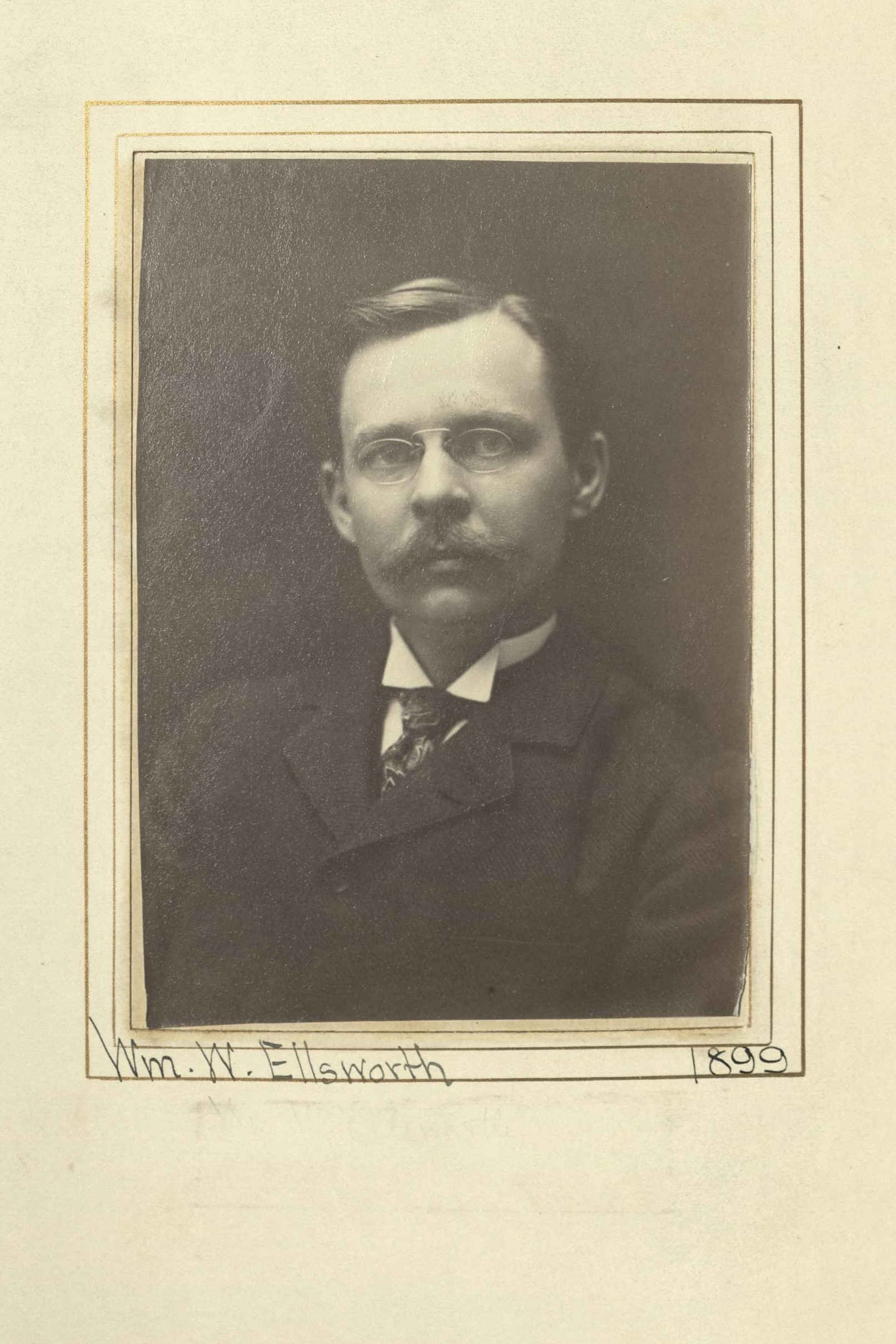Publisher
Centurion, 1899–1936
Born 30 October 1855 in Hartford, Connecticut
Died 19 December 1936 in Torrington, Connecticut
Buried Town Hill Cemetery , New Hartford, Connecticut
, New Hartford, Connecticut
Proposed by Augustus Saint-Gaudens and William Bispham
Elected 3 June 1899 at age forty-three
Archivist’s Note: Great-grandson of (nonmembers) Noah Webster and Chief Justice Oliver Ellsworth
Proposer of:
Century Memorial
As head of a publishing enterprise long familiar to an older New York, William Webster Ellsworth had an interesting ancestry. His great-grandfather on the one side was Noah Webster, compiler of the famous dictionary; on the other side Chief Justice Oliver Ellsworth of the United States Supreme Court. His own life achievement lay in his association with a monthly magazine which filled a large place in the periodical literature of the Eighties and Nineties, but is now among reminiscences of the past. In his capacity for twenty-two years as Secretary of the Century Company and for three years thereafter as its president, he shared in directing the fortunes of the Century Magazine during its brilliant years. In the Century’s publication of the Lincoln Life by Nicolay and Hay—an extremely important contribution to our national history, which told for the first time the real story of Lincoln’s statesmanship in the war administration—Ellsworth had an important part. It was he who persuaded Joseph Jefferson to write his altogether charming autobiography. He had a hand in procuring for the Century, in 1908, the celebrated article embodying an interview glaringly indiscreet on the side of the personage interviewed, which William Bayard Hale had obtained from the German Kaiser, and which chiefly engaged itself, more or less unpleasantly, with “things American.”
Ellsworth often recalled that curious incident. A copy of the manuscript had at the start been duly submitted to the German Foreign Office. There it was pigeon-holed, either unread or without comprehension of its indiscretions. Some high functionary, better accustomed to watch the Kaiser’s vagaries, unearthed it just before the date of publication, read it with hair on end, and forthwith protested to our State Department and the Century Magazine, against its publication. The Century, which had paid Hale $1,000 for the article and whose workshop was already binding up the sheets of the monthly number which contained the imperial remarks, had to give way to the diplomatic storm. It filled the now vacant pages with something else, delivering the original printed sheets to German officers, who carried them to sea on a warship and burned them in mid-ocean. Nevertheless, the story persisted that one set of page proofs had survived, possibly filched by a Century proof-reader, and was utilized for published “excerpts,” half a dozen years later.
Alexander Dana Noyes
1937 Century Association Yearbook

